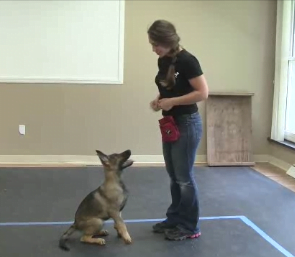Ai Kutsumi, Miho Nagasawa, Mitsuaki Ohta And Nobuyo Ohtani 2013
Highlights:
- Both puppy obedience and adult obedience classes improved obedience compared to no class or puppy "party" classes
- Dogs who went to puppy obedience classes also had a more positive response to strangers compared to all other groups
ABSTRACT
In this study, we attempted to clarify whether puppy socialization and command training class, which was limited to puppies approximately 4 months of age, prevented behavior problems in dogs. We evaluated the behaviors of 142 dogs with 4 types of training experience by using a behavior test and the Canine Behavior Assessment and Research Questionnaire (C-BARQ). Dogs in the puppy class (PC) group (n=44) attended the class for 1 hr each week for 6 weeks, dogs in the puppy party (PP) group (n=39) attended a 1-hr “puppy party,” dogs in the adult class (AC) group (n=27) undertook basic obedience lessons for adolescent/adult dogs for 1 hr each week for 6 weeks, and dogs in the no class (NC) group (n=32) underwent no formal training. The behavior test evaluated each dog’s response to commands, owner’s recall, separation, a novel stimulus and strangers. The C-BARQ evaluated 15 canine behavioral factors. The behavior test results indicated that the PC and AC groups showed significantly higher response to commands than the PP or NC group. Thus, participation in puppy and adult classes improved the obedience behavior of dogs, regardless of age. Positive response to strangers in the PC group was significantly higher than that in the AC and NC groups and tended to be higher than that in the PP group. Therefore, PC may help prevent canine behavioral problems such as disobedience or fear of strangers.
Download full study below



Responses